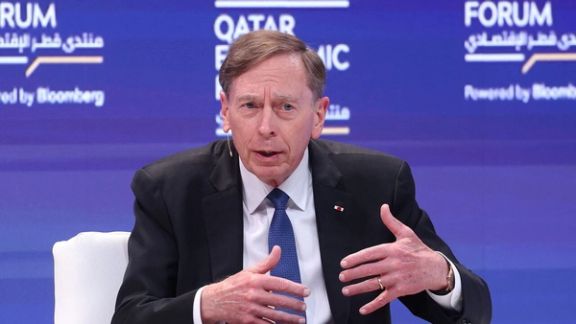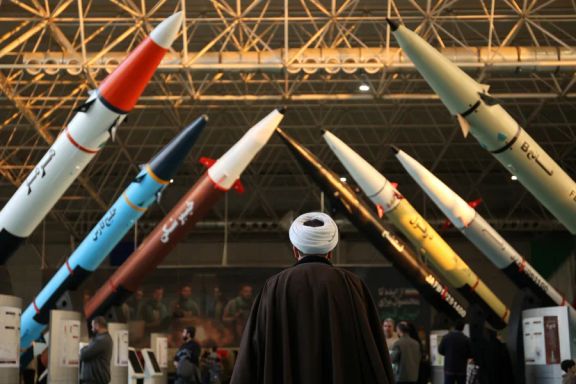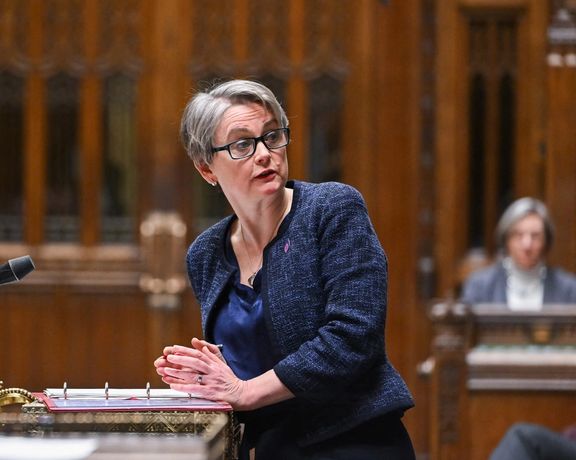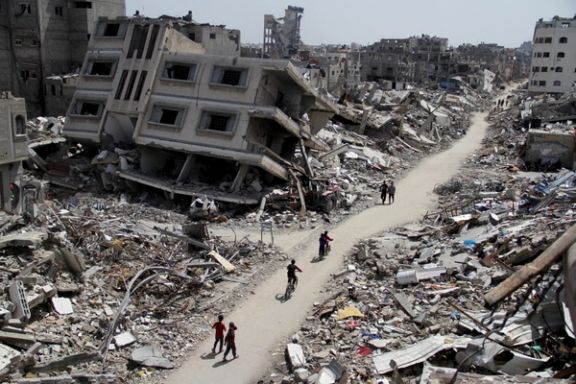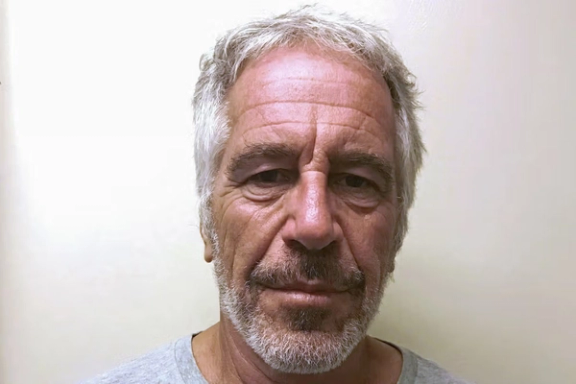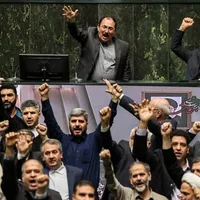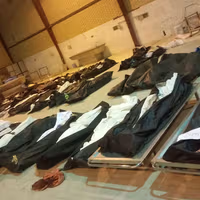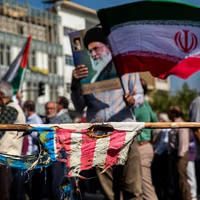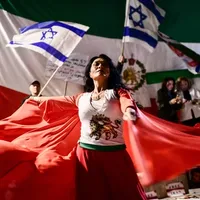Israel's military said it had found the Hamas documents in tunnels in the Gaza Strip, the US daily reported. Iran International in November reported that the Joe Biden administration had leaked sensitive information on the peace drive before the attack.
The Hamas documents contain minutes of a high-level meeting by the Iran-aligned militant group in Gaza purporting to show that days before the assault, Yahya Sinwar, Hamas’s former leader in Gaza, said an “extraordinary act” was required to derail the talks that he said risked marginalizing the Palestinian cause.
The WSJ report said the meeting minutes were from an October 2, 2023 gathering of Hamas’s political bureau in Gaza, just five days before the deadly attacks on Israel. They cite Sinwar as saying, “There is no doubt that the Saudi-Zionist normalization agreement is progressing significantly.”
Sinwar, who was killed last year, warned a deal would “open the door for the majority of Arab and Islamic countries to follow the same path.”
Since the October 7 attacks which saw at least 1,200 people killed and more than 250 more taken hostage by the militant group, Israel’s military campaign has seen over 53,000 people in Gaza killed, according to the Hamas-run Ministry of Health statistics.
The Israeli military says at least 20,000 of those are militants.
Normalization on hold
The Gaza war has for now succeeded in halting the normalization, which was aimed to be an extension of the 2020 US President Donald Trump-brokered Abraham Accords that saw Israel form diplomatic ties with Arab states such as Bahrain and the United Arab Emirates.
Around two-thirds of Gazans have been displaced with huge swathes of the strip now in ruins after Israeli military bombing and ground incursions as international aid agencies warn the population is on the brink of famine.
During a trip to Riyadh last week, Trump reiterated his calls for Saudi Arabia to establish relations with Israel but said, “You’ll do it in your own time.”
In November, Iran International reported that an official in White House national security advisor Jake Sullivan's office leaked information about Saudi-Israeli peace talks just before the Hamas attack on Israel, suggesting it had been the final spur for the group to attack.
Speaking on the Eye for Iran podcast, Jeff Sonnenfeld, a US academic who assisted Jared Kushner in the Abraham Accords told Iran International that a deputy on Sullivan’s team leaked information on the diplomatic push.
The potential disclosures dealt with the Biden administration's talks with Saudi Arabia and Israel on expanding the Abraham Accords just prior to Oct. 7.
“It would have been amazing but by tempting fate like that Hamas realized this was their last moment to strike,” Sonnenfeld said.
A spokesperson from the national security advisor denied the allegations.
'Strategic shift'
The Palestinian militant group which has controlled Gaza since a 2007 takeover has long voiced its opposition to the normalization of ties between Israel and the kingdom, whose vast oil wealth and custodianship of the Islam's holiest sites give it heft in the region.
Hamas calls for the destruction of Israel and the creation of a Palestinian state in its place.
In the alleged meeting minutes, Sinwar said the time had come “to bring about a major move or a strategic shift in the paths and balances of the region with regard to the Palestinian cause”, expecting support from other Iranian-backed forces of the so-called axis of resistance to Israel.
Since the Hamas attacks, Israel has come under fire from other Iranian allies, including Hezbollah in Lebanon and the Houthis in Yemen, as well as facing two direct missile barrages from Tehran. Most were handily repelled by Israel and its allies.
In September, Saudi’s de-facto ruler, Crown Prince Mohammed Bin Salman, said explicitly that there would be no normalization before the creation of an independent Palestinian state, telling the country's Shura Council that "we affirm that the kingdom will not establish diplomatic relations with Israel without one."
It came just a year after the kingdom was more openly suggesting formal ties were close, bringing the once-secret ties into the open.
In June 2023, Saudi Arabia’s ambassador to the US went as far as saying Saudi Arabia hopes to see a “thriving Israel” as part of a unified Middle East, a tacit nod to finally acknowledge the Jewish state.
Princess Reema bint Bandar al-Saud, a member of the Saudi royal family, told an event in Colorado: “We want to see a thriving Israel, we want to see a thriving Palestine.”
Referring to Bin Salman’s long-term agenda, in which Israel would be a part, she added: “Vision 2030 talks about a unified, integrated, thriving Middle East and last I checked, Israel was there.”

